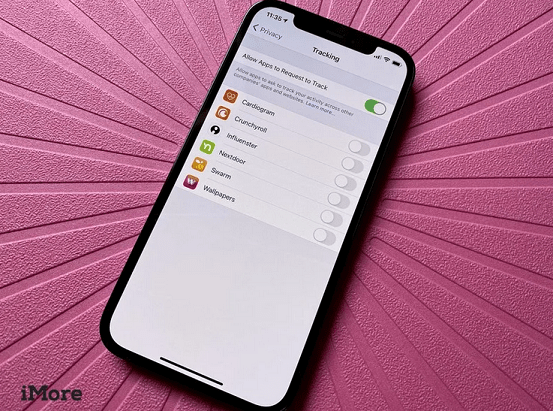By
Apple’s App Tracking Transparency is doing what it’s supposed to do and people are mad about it.
Brian Bowman really hates Apple’s App Tracking Transparency.
The CEO of Consumer Acquisition, a social ad agency, sat down recently for an interview with Gamesbeat (part of Venture Beat) that touched on the effects that Apple’s new App Tracking Transparency feature was having on the advertising industry. When Gamesbeat asked Bowman what life after Apple’s IDFA changes is like so far, the CEO said that some clients are seeing revenue being impacted as much as 40%.
“Well, we’re not post-IDFA yet. We’re still in transition. It’s what I expected. There’s a loss of a portion of revenue, depending on how people are evolving. I don’t expect the full impact to be felt until the end of July. The rollout of 14.6 has been slow. It’s obviously picking up. Apple intentionally delayed app tracking transparency until 14.6. Certain clients are down 30% to 40% percent in revenue. Others are feeling less of an impact. It’s a mess.”
Bowman had even stronger words when asked about Apple’s stance that its new anti-tracking measures were a step forward for user privacy, calling it “absurd.”
“If people actually cared about privacy, then anything tied to Edward Snowden would have been a big deal. The government reading my emails and listening to my phone calls. People look at it like this. I’m not doing anything inappropriate. I’m a normal person. I don’t care. The whole question is upside down. It’s not a question of privacy. It’s a question of personalization. Apple has done a phenomenal job of PR. They don’t offer privacy. What they’re doing is centralizing and curating data. You have to use their app store. You have to use their payment gateway. They understand your voice, your fingerprint, and your health data. They understand the way you purchase. That’s not privacy. Apple is defining privacy by saying they get all the data and therefore it’s private. It’s absurd.”
While it’s not surprising to hear an advertising executive lambast Apple for hurting an advertising method, the simple fact is that advertising companies enjoyed the luxury of collection plenty of user data without people’s knowledge for years.
However “absurd” it may be, App Tracking Transparency is a great step forward for user privacy and a win for Apple’s continued efforts in the area. It gives each and every user a choice on what they want to do with their data.
MagBase keeps the MagSafe Charger on your desk when you move your iPhone
Apple’s MagSafe Charger is pretty great for all kinds of reasons, but it’s also infuriating for one big reason — it always comes with your iPhone when you pick it up. That’s great if that’s what you want it to do, but very much not great if it isn’t. The ElevationLabs MagBase fixes that, and it costs less than $10.
iOS 15 & watchOS 8 now let you install them with almost no available space
Apple’s latest iOS 15 and watchOS 8 betas include a change that will allow updates to be installed on devices with less than 500MB of free space.
Add AirPlay 2 to your audio setup with these connected receivers
Want to keep the tunes flowing as you walk into your home theater? Or do you want to build your own surround sound system using your existing AirPlay 2 speakers? You can do all of that, and more, with the best AirPlay 2 receivers.
Feature Image Credit: Christine Romero-Chan / iMore


